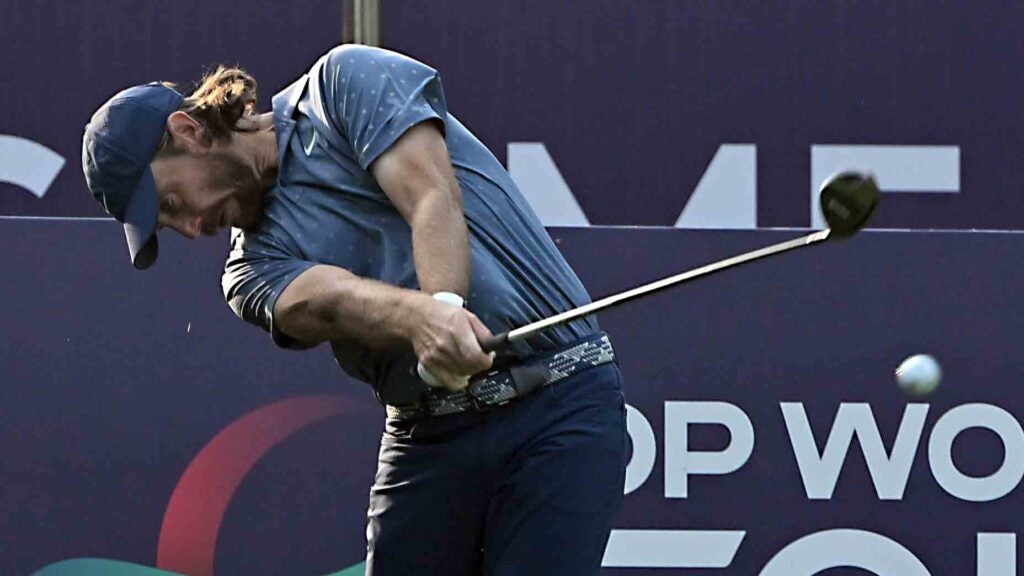
Mental Game of Golf: Meditation, Resilience & Handling Criticism
Golf challenges not only physical skill but also mental strength. Professional golfers, from tranquil courses to high-stakes tournaments like the FedExCup, must manage mental health, public scrutiny, and personal growth. Key strategies for success include meditation to enhance focus and recover from setbacks, building mental resilience through techniques like visualization, managing public criticism with psychological tools and support, and taking strategic breaks to prevent burnout and encourage reflection. These psychological practices are crucial for sustaining performance and fostering long-term career fulfillment, enabling golfers to thrive both on and off the course.
Summary
The Mental Game of Golf: Resilience, Reflection, and the Road to Success
Golf is not just a test of physical skill but a profound journey through mental challenges. From the serene settings of natural golf courses to the high-pressure environments of tournaments like the FedExCup, professional golfers must navigate a complex landscape of mental health, public opinion, and personal growth. This article delves into how meditation, mental resilience, and strategic breaks contribute to success in professional golf, offering insights into the psychological strategies that can make or break a golfer's career.
Key Takeaways: - Meditation enhances focus and aids in recovery from professional setbacks, crucial for consistent performance. - Managing public opinions and criticism is vital for maintaining mental health and personal integrity. - Taking strategic breaks and reflecting on one's journey can prevent burnout and foster long-term success.
The Role of Meditation and Mental Resilience in Professional Golf
Enhancing Focus Through Meditation
Meditation has become a cornerstone for many athletes, particularly in golf, where mental clarity can significantly impact performance. Mindfulness practices, part of meditation, help golfers maintain concentration over long periods, crucial during tournaments where a single lapse can cost dearly. Studies have shown that golfers who engage in regular meditation report improved stress reduction techniques and focus enhancement, leading to better performance consistency. This practice not only sharpens the mind but also aids in the psychological recovery from losses, fostering resilience in sports.
Building Mental Resilience
Mental resilience in golf involves more than just bouncing back from a bad game; it's about developing emotional toughness and coping strategies that endure throughout a golf career. Professional golfers like those competing in the FedExCup must accumulate points through a season of high-stakes play, where mental resilience can be the difference between qualifying for playoffs or not. Techniques like visualization, part of the sports mindset, allow golfers to mentally rehearse success, enhancing their confidence and reducing self-doubt.
Dealing with Public Opinions and Criticism
The Psychological Impact
In today's digital age, professional athletes are under constant scrutiny, with social media amplifying public opinions. For golfers, this can mean a barrage of criticism following a poor performance or even unwarranted personal attacks. This environment necessitates a robust psychological framework. Athletes must develop strategies for handling defeat and learning from losses, turning negative feedback into constructive self-improvement without losing self-esteem.
Strategies for Managing Criticism
To manage the influx of opinions, many golfers turn to performance psychology, seeking ways to maintain personal integrity amidst external noise. This includes setting boundaries on social media exposure, engaging with positive reinforcement from coaches or mentors, and sometimes, professional mental health support to navigate anxiety management and depression awareness, particularly crucial in a sport where isolation can exacerbate mental health issues.
The Value of Taking Breaks and Reflecting on One’s Journey
Preventing Burnout
The demanding schedule of a professional golf career, with its constant travel and competition, makes burnout a real threat. Taking strategic breaks is not just about physical rest but also about mental recuperation. These pauses allow for reflection on career milestones, personal growth, and the strategic planning of one's career trajectory. By stepping back, golfers can assess their performance psychology, adjust their training, and return with renewed vigor and perspective.
Reflection for Strategic Growth
Reflection in golf isn't merely about looking back; it's a forward-thinking process. It involves analyzing one's career journey, understanding the environmental impact on performance, and how natural settings can enhance mental clarity. Golf courses designed in harmony with nature not only provide a therapeutic environment but also a setting where golfers can reconnect with the essence of the game, away from the pressures of competition.
Conclusion
In the world of professional golf, mental health practices like meditation, strategies for dealing with public criticism, and the wisdom of taking reflective breaks are indispensable. They contribute not just to immediate performance but to the longevity and fulfillment of a golfer's career. By integrating these elements, golfers can navigate their career journey with resilience, maintaining their confidence and mental health amidst the challenges of professional sports. This holistic approach ensures that golfers are not only competitors but also well-rounded individuals capable of thriving in both their sport and personal lives.

Frequently Asked Questions
Q: how to bounce back after losing in golf
A: To bounce back after losing in golf, start by analyzing your performance to identify areas for improvement without dwelling on mistakes. Maintain a positive mindset by focusing on the progress you can make and setting realistic goals for your next game. Practice regularly to rebuild confidence and work on specific skills that need refinement. Remember, every golfer experiences losses, so use setbacks as learning opportunities to grow and improve your game.
Q: importance of meditation in professional sports
A: Meditation plays a crucial role in professional sports by enhancing athletes' focus, reducing stress, and improving mental resilience. It helps players maintain composure under pressure, recover from setbacks, and improve overall performance. Many professional athletes use meditation to cultivate mindfulness, which contributes to better concentration and decision-making during competitions.
Q: Rory McIlroy opinions on sports fans
A: Rory McIlroy has often expressed appreciation for sports fans, acknowledging their role in creating an exciting and supportive atmosphere during competitions. He values the passion and energy that fans bring to events, which can motivate athletes to perform at their best. At times, McIlroy has also emphasized the importance of respectful behavior from fans to maintain a positive environment in sports settings.
Q: Ben Griffin golf career challenges
A: Ben Griffin's golf career has faced several challenges, including strong competition at both amateur and professional levels. Like many aspiring golfers, he has had to overcome the pressures of maintaining consistent performance while striving to break through in tournaments. Injuries and the mental demands of the sport may have also posed obstacles, common in a competitive golf career.
Q: mental strategies used by top golfers
A: Top golfers often use mental strategies such as visualization, where they imagine successful shots to build confidence and focus. They practice mindfulness and stay present, avoiding distractions or negative thoughts that could affect performance. Additionally, they develop pre-shot routines to maintain consistency and control nerves under pressure. Managing emotions and maintaining a positive mindset are also key to sustaining performance throughout a round.
Key Entities
Tommy Fleetwood: Tommy Fleetwood is an English professional golfer known for his consistent performances on the DP World Tour. He has multiple European Tour victories and is recognized for his strong ball-striking and composure under pressure.
Rory McIlroy: Rory McIlroy is a Northern Irish professional golfer who has won four major championships and several PGA and European Tour events. He is one of the leading figures in international golf, known for his powerful drive and competitive spirit.
Ben Griffin: Ben Griffin is a professional golfer who competes on the DP World Tour. He has earned recognition for his recent performances and is considered a rising talent in European golf.
DP World Tour: The DP World Tour is a premier professional golf tour primarily based in Europe, featuring top international players. It was formerly known as the European Tour and organizes a global schedule of tournaments.
Justin Rose: Justin Rose is an English professional golfer and Olympic gold medalist who has won multiple tournaments on both the PGA and European Tours. He is respected for his skill, consistency, and sportsmanship throughout a successful career.
External articles
- On losing, opinions and stopping: 3 moments of ...
- Ben Griffin Gave Up Golf... Now He's Contending At The ...
- I was a mortgage loan officer and nearly quit golf four years ...
Related Articles
YouTube Video
Title: Who knew Rory McIlroy was such a cricket fan?! 🏏 #golf
URL: https://www.youtube.com/shorts/vHMl3J9_XVQ
Golf